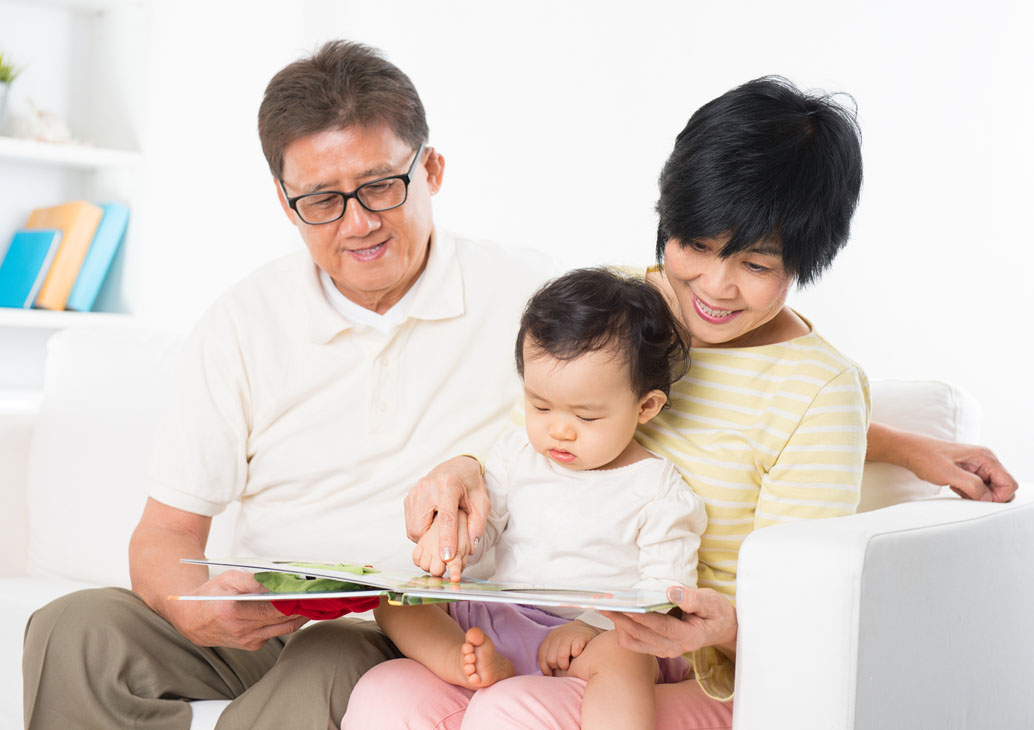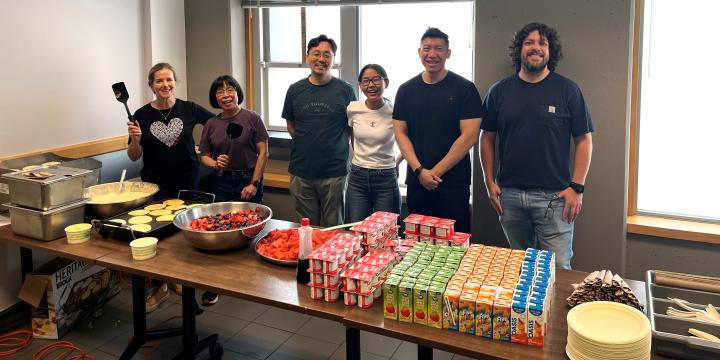
As adults, we love playing with language. We like reading novels on the beach, playing Words with Friends on our daily commutes and doing the Sunday crossword. Language enriches life and is key to self-expression. You can share the gift of words with your child throughout her life through play.
Like cognitive, social and emotional development, expanding your child’s ability to express herself is best nurtured through play-based learning. Play encourages curiosity, creativity, thinking skills and problem solving, which all enrich reading and writing. Through games, songs and other activities, you can build positive associations with learning that will extend your baby’s love of books and stories.
Before children learn to read, they are rapidly building a vocabulary by listening, learning several new words a day. Even in the first six months of life, your child will start discovering her voice and communicating with you. Between six to twelve months, your baby will likely learn to respond to familiar sounds, babble and eventually repeat words such as “mommy” and “daddy”, and start to recognize his or her name. Babies’ language skills will develop quickly and they will understand more that they are able to communicate.

Try these activities to boost your child’s language development:
At 0-6 months
-
Talk to your baby whenever you can, and in the language (or languages) you feel most comfortable speaking.
-
Sing songs and rhymes in a soothing voice, read board books to him, and play games with soft toys, such as peek-a-boo. Already you are connecting your baby to her environment through words.
At 6-9 months
-
When something grabs your baby’s attention, use simple sentences to describe or explain it: “Grandma is petting the dog”, for example, or “We are eating dinner.”
-
At this stage, children haven’t yet learned how to speak and pronounce words; sign language can empower your child tell you how she feels.
-
Continue talking, singing songs, and reading to your baby as much as possible.
At 9 months - 1 year
-
Keep giving your baby positive reinforcement when he is babbling, by responding and having conversations.
-
Read books together, and describe the illustrations.
-
Attach words to the environment around her by describing people (auntie, big sister, grandpa), objects (red apple, book, phone), and activities (walking, touching, clapping) while you play.
-
Play games together such as “Where’s your nose?” or sing songs with actions like “The Wheels on the Bus.” These activities encourage your baby to practice speaking.
By playing and supporting your child’s cognitive and language development from birth, you are building a solid foundation for a future enthusiastic reader and writer.

